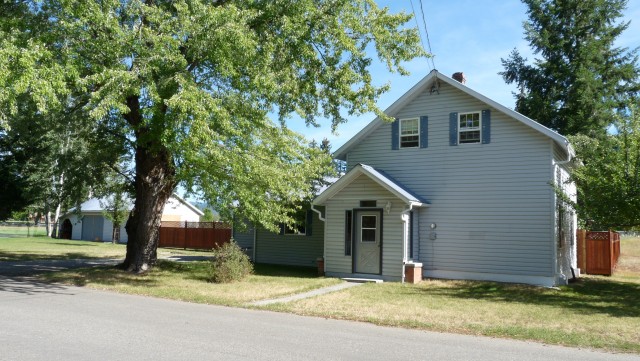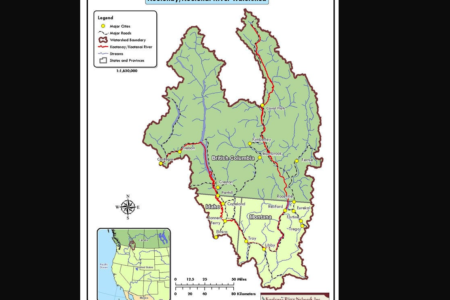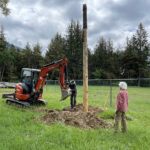Housing not affordable for locals looking to rent
Affordable housing in the Boundary is only a play on words if you talk with locals looking to rent. Just ask Jessi Bryan, a single mother looking for somewhere to live in Grand Forks as she returns to college this month. “I’ve been looking for quite a while now, about six months, and all the places available are too expensive because I’m on a pretty fixed budget,” explained Bryan. As she has been looking, Bryan has found prices ranging from $660 for a one-bedroom apartment that doesn’t accommodate her two daughters, to $800 for a two-bedroom. Bryan receives about $570 for rent from her income assistance and has to purchase everything else she needs for her family – diapers, food, telephone, power – on the remaining $330 she receives. Because of her activities – exercise program, children’s support programs, and school – Bryan, who currently lives in Greenwood with her parents, travels sometimes twice a day to Grand Forks – about two hours of travel. “I know they (owners of rental units) are probably (charging the higher prices) because a lot of people on welfare have a tendency to wreck places so they make the price higher to weed out those people, but it just doesn’t work for the ones that are really trying, those that don’t really want to be on assistance. At this point I have to be, with the baby and trying to go back to school,” said Bryan. Bryan feels there should be more affordable housing in the area, a position that Grand Forks and District Housing Association’s president Judith Lloyd agrees with entirely. The Association started the Gables affordable housing project and currently runs the Boundary Lodge assisted living facility. For Lloyd there is no question that the region needs more affordable housing. “When it comes to housing for young people I think that the rental market has eased up a bit but the problem with that is that it is quite expensive to rent something,” said Lloyd. “The norm is that you should not spend more than 30 percent of your income on housing. If (rent) is $700 per month, most jobs in Grand Forks don’t pay that kind of money. The discrepancy in regular housing for young mothers is that they can’t get into it economically.” According to George Penfold, regional innovation chair for Selkirk College, between 20 – 30 percent of people living in the Boundary region face affordability issues (paying over 30 percent of their income on housing.) Lloyd explained that the Gables’ 25-units are some of the few housing units for low-income families in Grand Forks, but they continually have a waiting list of applicants. Funding opportunities to develop new affordable housing are accessed through B.C. Housing. Lloyd commented that conversations the Association has had with the B.C. Housing indicate that there is no funding available right now for housing. “If the government has money available you have a good chance of putting something together, if they don’t have money, you don’t. The problem is that no private investor can build something and make any profit on it,” said Lloyd. “The only way to do it is subsidized housing.” Although the federal and provincial governments just last week announced 32 new housing developments across B.C. with an investment of $33 million to increase the supply of affordable rental housing, the projects are largely aimed at seniors and people with disabilities and none are slated for the Boundary region. Lloyd said that she has also been told that the province’s current funding focus is on homelessness instead of general affordable housing. “I don’t know what you’d do if you don’t have family or friends and you have a very low paying job. We had a situation at the Gables not too long ago that the woman was getting money for housing but it wasn’t anywhere near enough for her to house her kids and feed them – one of the two had to go.” Lloyd, who is also a retired realtor, said that Grand Forks has fluctuated between an abundance of rental units to scarcity. In the last few years as the market for housing was high, many of the rental units that were in the community were changed over to stratas and sold, which also lowered the amount of available rentals in the area. Property Manager with Grand Forks Realty, Ken Dodds, agrees that the current rental market is quite tight, but his sense is that the prices are competitive when compared with other cities in the region. “The market is always tight. The price is dependent on owners, of course. Compared to Trail, Castlegar and all those other places, the rent around here is fine.” Dodds also said that one option to assist low-income individuals that are working to supplement their needs for housing is a program that many people don’t seem to know about called the rental assistance program. It provides assistance to families with at least one child and incomes of less than $35,000 with cash assistance for rent through B.C. Housing.
In the meantime, Bryan continues her search.























